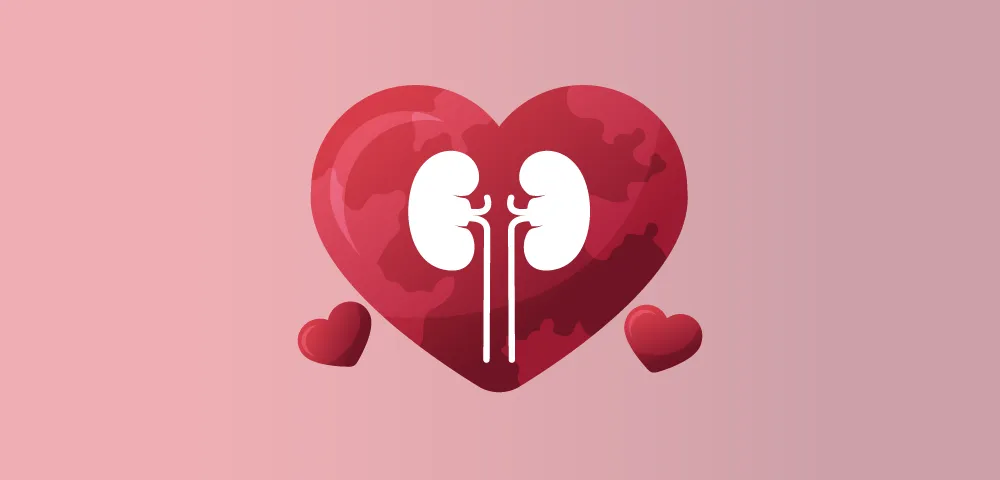Thanks to advanced technology and the expertise of specialised transplant teams, liver transplant procedures have become safer, more efficient, and highly successful.
Today, patients undergoing liver transplants benefit from precision-driven surgical methods, modern imaging, and cutting-edge immunosuppressive medications that drastically reduce the risk of complications.
Prompt medical attention is critical for patients with liver problems, as a transplant is often one of the most effective and life-saving interventions available.
In this step-by-step guide, we’ll take you through the entire journey—from understanding what a liver transplant entails to preparing for surgery, the procedure itself, and the recovery process.
Whether you are a patient facing surgery or a family member seeking guidance and support, this guide will offer valuable insights into each stage of the transplant process.
Together, let’s explore how liver transplants are transforming lives and what you can expect every step of the way.
1. What is a Liver Transplant?
A liver transplant is a surgical procedure that involves replacing a diseased liver with a healthy liver from a donor.
It is often the last line of treatment for patients with severe liver diseases that cannot be managed through medication or other therapies.
According to the United Network for Organ sharing a record 10,660 liver transplants were performed in 2023, the most number of transplants to have ever been performed in a single year.
2. Types of Liver Transplants
Different types of liver transplants are tailored to meet patient’s unique needs, whether through donations from living donors or deceased ones.
- Deceased Donor Liver Transplants: This is the most common type, where a healthy liver from a deceased donor is transplanted.
- Living Donor Liver Transplants: In this procedure, a living donor donates a portion of their liver, which regenerates over time.
- Split Donation: Sometimes, a deceased donor liver can be divided to help two recipients, benefiting multiple patients with a single donation.

3. Who Qualifies to be a Candidate for a Liver Transplant?
A liver transplant is typically reserved for patients with end-stage liver disease, a condition in which the liver is severely damaged and can no longer perform its essential functions.
For these patients, standard medical treatments and therapies are no longer effective, and a liver transplant becomes the only viable option for survival and improved quality of life.
The transplant is generally recommended after thorough evaluations and when all other treatment options have been exhausted.
Candidates undergo various diagnostic tests, including blood tests, imaging, and liver function assessments, to determine eligibility.
You may need a liver transplant if you are diagnosed with any of the following conditions:
- Hepatitis B and Hepatitis C
- Liver Cirrhosis (often from alcohol abuse or viral hepatitis)
- Primary Liver Cancer (when confined to the liver)
- Polycystic Liver Disease
- Hemochromatosis
- Wilson’s Disease
- Autoimmune Hepatitis
- Alpha-1 Antitrypsin Deficiency
Exclusion Criteria
To ensure the highest chance of success and prevent potential complications, transplant programs have established criteria to determine eligibility.
These exclusion criteria are essential to maximise the benefits of limited donor organs and prioritise patients who are likely to respond well to a transplant.
- Active cancer outside the liver
- Recent alcohol use (within six months)
- Substance abuse history
- Severe heart or lung conditions
- Non-compliance with treatment protocols
- Other chronic, untreatable health issues

4. Preparing for a Liver Transplant
Preparation for a liver transplant is thorough and aimed at ensuring the patient's body can withstand the procedure and recovery process. This stage includes:
- Medical Assessments: Patients undergo comprehensive tests—such as blood tests, imaging scans (like MRIs and CT scans), and heart function evaluations—to assess overall health and detect any potential complications.
- Consultations: Patients meet with a team of specialists, including hepatologists, surgeons, and nutritionists, to discuss the procedure, address any health issues, and set realistic expectations.
- Lifestyle Adjustments: To improve transplant outcomes, patients are often advised to make key lifestyle changes.
These may include adopting a balanced, liver-friendly diet, achieving a healthy weight, and eliminating alcohol or substances that could negatively impact the liver or interfere with recovery.
5. Transplant Surgery
Liver transplant surgery is a highly intricate procedure, requiring a dedicated surgical team and specialised equipment to ensure the patient’s safety and the transplant’s success.
The surgery itself typically lasts between 6 and 12 hours, depending on the complexity of the case and the patient’s specific needs.
During the operation, the surgical team removes the diseased liver and replaces it with the donor liver, connecting vital blood vessels and bile ducts to restore liver function.
Post Surgery Recovery
After surgery, the patient is moved to the Transplant Intensive Care Unit (ICU) for close observation.
This is a critical period, as the body’s initial response to the new liver is carefully monitored.
ICU care includes round-the-clock tracking of vital signs, organ function, and any signs of infection or complications.
Here’s what to expect after ICU:
- Moving to a Patient Room
Once the patient’s condition stabilises in the ICU, they are transferred to their patient room. Here, the focus shifts from intensive monitoring to recovery activities and gradual mobility.
- Immunotherapy
Immunosuppressive drugs are essential to prevent the immune system from attacking the new liver. Patients must adhere strictly to this regimen to maintain transplant health and reduce the risk of rejection.

The Post-Transplant Care Team’s Role
The care team, including doctors, nurses, dietitians, and physical therapists, plays a vital role in helping the patient recover smoothly. They assist with:
- Movement: Gentle exercises to prevent blood clots and improve circulation.
- Nutrition: Gradually reintroducing foods, starting with liquids and progressing to solids as the digestive system stabilises.
- Home Care Plan: Developing a tailored plan, including medications, activity guidelines, and lifestyle adjustments.
Before discharge, the care team will provide
- Nutritional Guidance: A diet plan to support liver health and promote healing.
- Medication Instructions: Detailed guidance on immunosuppressive and any additional medications.
- Recovery Tips: Advice on lifestyle modifications, physical activity, and other habits to foster long-term health.
- Follow-Up Care Schedule: Information on when to return for post-transplant evaluations.
6. Home Recovery and Health Gain
Full recovery following a liver transplant can take six months or more, during which time the body adjusts to the new organ.
This period involves ongoing support from the transplant team and significant lifestyle adjustments for the patient.
- Regular Follow-Up Visits: These are essential to ensure the new liver functions properly, adjust medication dosages, and address any side effects of immunosuppressive therapy.
- Activity and Lifestyle Modifications: Patients are encouraged to stay active to improve cardiovascular health and overall recovery. Activities are typically light at first, progressing as stamina and health improve.
- Long-Term Health Management: Patients will need to take immunosuppressive drugs for life to avoid organ rejection, along with regular blood tests to monitor liver function and detect potential issues early.
7. Survival Rate
Approximately 75% of liver transplant patients live at least five years post-surgery, according to the Mayo Clinic, with many experiencing a vastly improved quality of life.
Advances in surgical techniques and immunotherapy have steadily improved survival rates, giving patients renewed confidence in the procedure's success.
This guide provides a clear picture of the journey involved in liver transplantation, offering reassurance to those facing this life-saving procedure.
In Conclusion
Seeking immediate medical care for liver issues is vital, as a liver transplant remains one of the most effective and potentially life-saving treatment options available.
With advancements in medical technology, refined surgical techniques, and expert specialists, liver transplants have become safer, more effective, and more accessible than ever before.
My 1Health connects patients with leading liver transplant hospitals within its global network of recognised medical centers, providing guidance and support throughout the treatment process.
Whether it’s arranging consultations, coordinating hospital care, or supporting patients through every step of their transplant journey, My 1Health is committed to making top-tier medical care accessible to patients worldwide.
With the right knowledge, expert care, and a trusted partner like My 1Health, you can undergo a liver transplant with confidence, knowing you are in capable hands.










